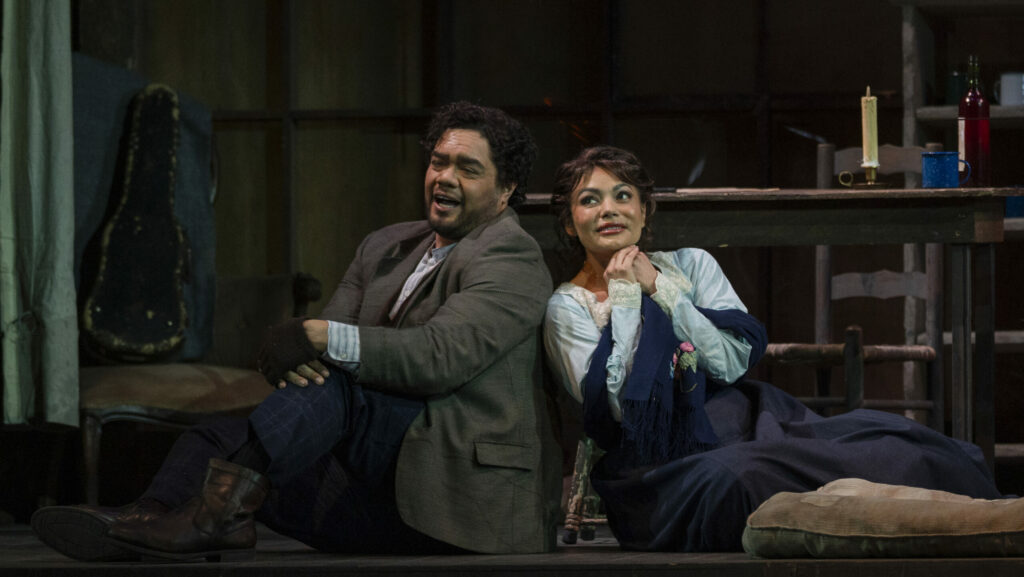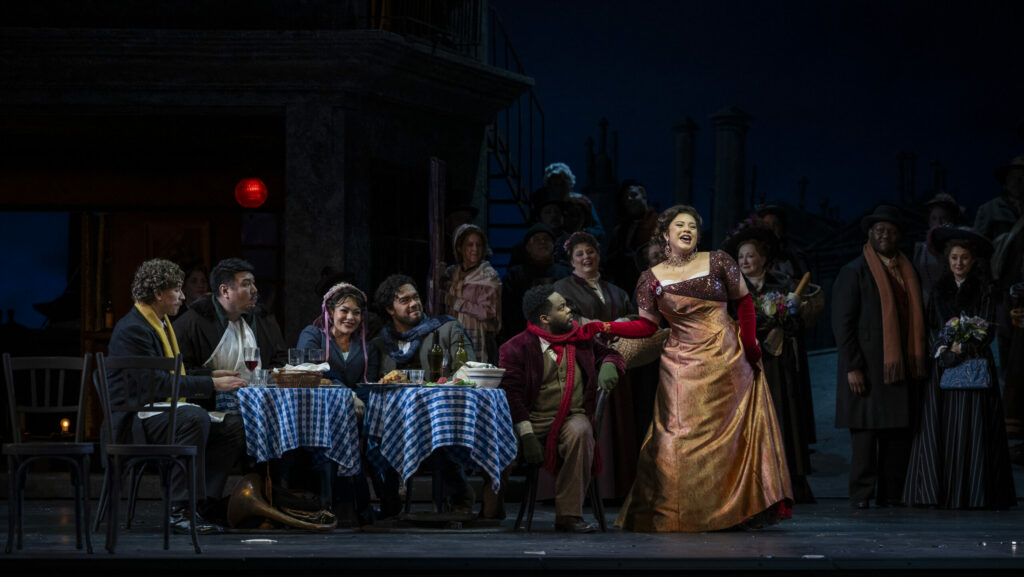

Michael Brosilow
A lot of the fantastic thing about Bohème has nothing to do with the veristic Parisian soundscapes Puccini orchestrated into the rating or the grand spectacle at Café Momus in Act II, however the intimate textual content setting constructed into each aria and ensemble. Each soprano-in-training has tried “Mi chiamano Mimì” earlier than they have been prepared simply so they might respect delicate shift from Mimì’s mundane account of her days—“Sola mi fo il pranzo da me stessa. Non vado sempre a messa, ma prego assai il Signor”—to a lush, rising “Ma quando vien lo sgelo il primo sole è mio.”
That is to say that as a type of eager voice college students, on the subject of the scenography, really, I don’t ask for a lot from Bohème. Even such a by-the-book manufacturing as this one will be charming with the fitting singers. In her director’s notice Melanie Bacaling underscored her manufacturing was set within the Belle Époque. However her distinction between the opera’s unique 1830s setting and her personal late-nineteenth century interpretation didn’t result in any significant variations from Zeffirelli’s basic 1981 staging—the director’s apparent referent.
There was a sure lure to the Pene Pati’s beautiful tenor however largely in his center and decrease registers. Early on he demonstrated some pressure along with his prime in “Che gelida manina” that continued to floor all through every act. It was so constant all through the efficiency that I used to be left questioning if he was sick for his Lyric debut.
And I want I may say that Chicago native Ailyn Pérez’s “Mi chiamano Mimì” demonstrated the stable vocals she is thought for, however I used to be too distracted by intonation points and overuse of chest voice within the backside register. Each have been a constant downside that discovered their approach into “Oh! Buon Marcello” and “Sono andati?” from the Act IV finale. The strident timbre would have been welcome for a efficiency of the murderous Tosca, nevertheless it was misplaced for Mimì at her most pitiful.


Michael Brosilow
Shortly, I noticed that this Bohème was going to be a little bit of a slog. However there have been a couple of brilliant spots within the night time. The conductor, Jordan de Souza, introduced out coloristic particulars within the decrease strings and brass. Soprano Gabriella Reyes was a fierce Musetta whose delightfully spry “Quando me’n vo’” proved to be the vocal spotlight of the opera. Will Liverman delivered his regular sturdy baritone for Marcello although at occasions it appeared he was going by way of the motions. And as Colline, Peixin Chen sang “Vecchia zimarra, senti” with countless line and probably the most sincerity one may presumably dedicate to a coat.
However right here lies the rub. What kind of efficiency of Bohème is dominated by “Quando me’n vo” and an ode to a unclean previous jacket? I perceive they won’t dedicate a lot preparation to opera’s well-known conflict horse, nevertheless it shouldn’t really feel like we’re watching a rehearsal with the quantity of intonation and vocal glitches I heard final Friday night time. Primarily based on the shouts of “bravo” I heard from the person buzzing alongside to each aria behind me, it appears the claques didn’t agree. However the Lyric should current operas worthy of its popularity, even ones as worn-out as Bohème.